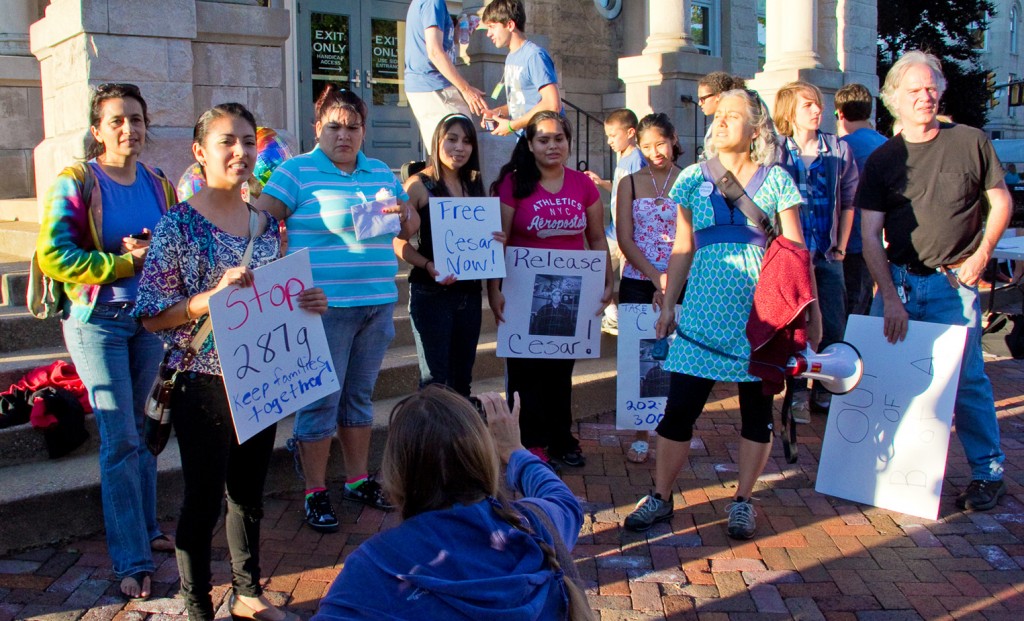After a June 2012 announcement by President Obama to grant “deferred action” to undocumented youth, Isabel Castillo ‘07 applied for authorization to work and live legally in the United States for the first time in her life. She also began assisting many others with similar applications.
Nevertheless, Castillo, a national leader in advocating for immigration-law reform, says “deferred action” falls far short of addressing the plight of undocumented immigrants living in the United States. For Castillo, the solution lies in enacting the DREAM Act, along with larger immigration reform and community support.
DREAM (which stands for Development Relief and Education for Alien Minors) and Obama’s Deferred Action for Childhood Arrivals (DACA) have parallel criteria to permit minors brought illegally to America to remain in the country after they become young adults. The criteria include:
• having arrived before the age of 16
• having lived in the U.S. for more than five years
• being between 15 and 35 at the age of applying
• no criminal record
The big difference between the two is that DACA is short term, while DREAM offers the hope of a permanent solution. DACA provides those eligible with work permits and is only valid for a two-year period, putting childhood arrivals at risk of deportation in the future.
“Deferred Action is very temporary, and it’s not a path for legalization,” Castillo says. “There’s still that risk that a new president could come in and cancel this program at any time.”
Castillo has been campaigning for the DREAM Act because it would permit “conditional legal status” – and a pathway to eventual citizenship – for those who meet certain criteria in terms of educational achievement or military service.
While thrilled to see any movement whatsoever in the direction of reform, Castillo feels DACA was a political move on President Obama’s part, timed to garner the votes of Latinos in the presidential election.
Brought from Mexico to the United States at age 6, Castillo has been fighting for immigration reform since graduating magna cum laude from EMU with a social work degree. Unable to work legally, she decided to speak up on behalf of herself and other undocumented young adults, despite the risk of deportation and separation from her loved ones.
Castillo has been covered in the New York Times, National Public Radio, The Atlantic, and Telemundo, a network that produces the second-largest amount of Spanish content in the world. She has spoken before governors, members of Congress and state legislatures, and university students, sharing her experiences and advocating legislative change. She has received an honorary doctorate from the University of San Francisco for her efforts.
The issues faced by immigrants like Castillo go beyond inability to find legal employment. Without a social security number, they cannot get driver’s licenses, apply for government-backed student loans, or even get admitted into most colleges, even if someone pays their way. James Madison University, for example, does not take undocumented students. These difficult realities motivate Castillo to go wherever she can – as close as churches and schools in the Shenandoah Valley to educate residents, as far south as Fort Lauderdale, Fla., to rally against “low-profile” deportations, and as far west as the University of Hawaii in O’ahu, where she discussed how to achieve equality for all immigrant youth, regardless of their legal status.
In October 2012, Castillo and supporters of immigration reform achieved a victory on the local level. Castillo spoke at the Rockingham (Va.) County Government Building on the topic of 287G, a contract signed between local government and ICE (Immigration and Customs Enforcement). Though the ostensible purpose of 287G was to deport high-level criminals, Castillo and her allies found that of the 297 individuals deported under 287G, only 12 percent were high-level offenders.
Thanks to mass emails, phone calls, flyers, and informational meetings, over 100 came to an Oct. 24 rally to ask that 287G be terminated, including many from EMU.
Professor Carol Snell-Feikema of EMU’s language and literature department, who attended the rally, said afterwards that she was thankful for Castillo’s “gifted voice, speaking on behalf of those most affected.” She added that Castillo “presented solid empirical evidence, as well presented the human side of the issue. She spoke from the heart, told personal stories with real impact, and did a great job of summarizing our work of interviewing Latinos in the community on the real-life effects of 287G in their daily lives.”
ICE wanted Rockingham County to extend 287G for three more months, but Rockingham County took no action at the meeting, causing 287G to end.
Supporters of 287G could attempt to reinstate it in December, and there is ever-constant work to do when it comes to local law enforcement, let alone that of the state and federal level. Castillo does not see herself giving up the struggle anytime soon for more humane laws.
